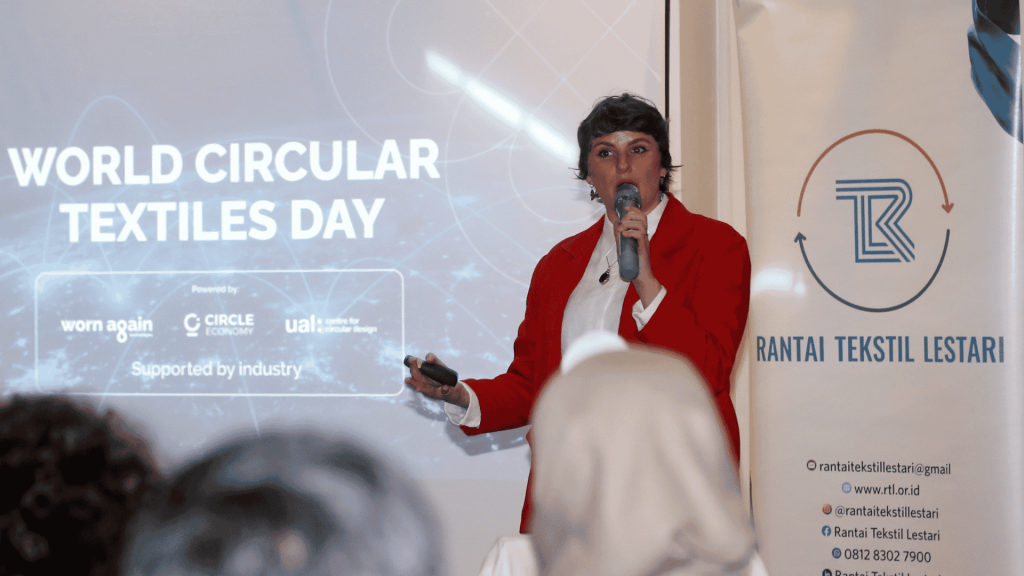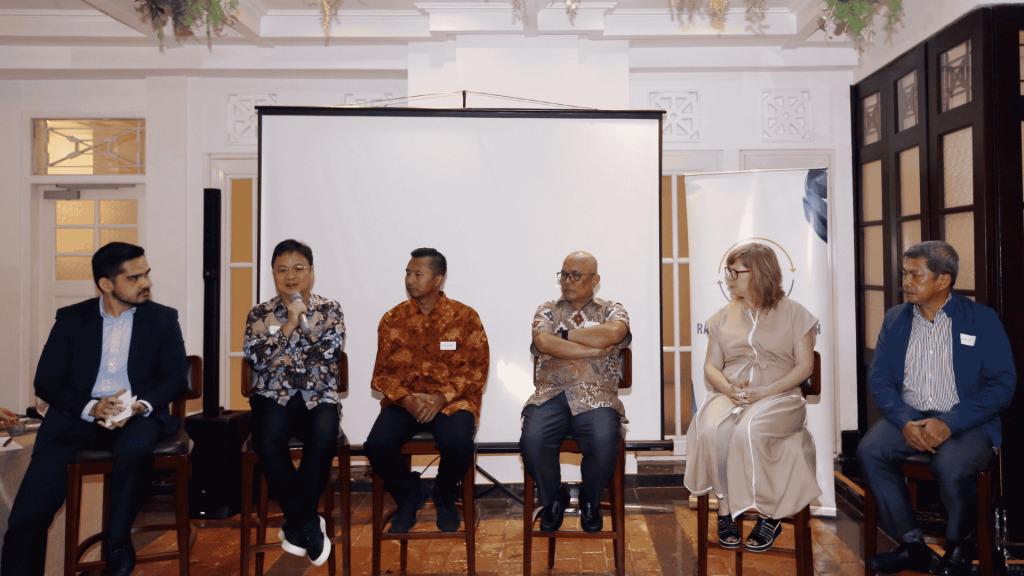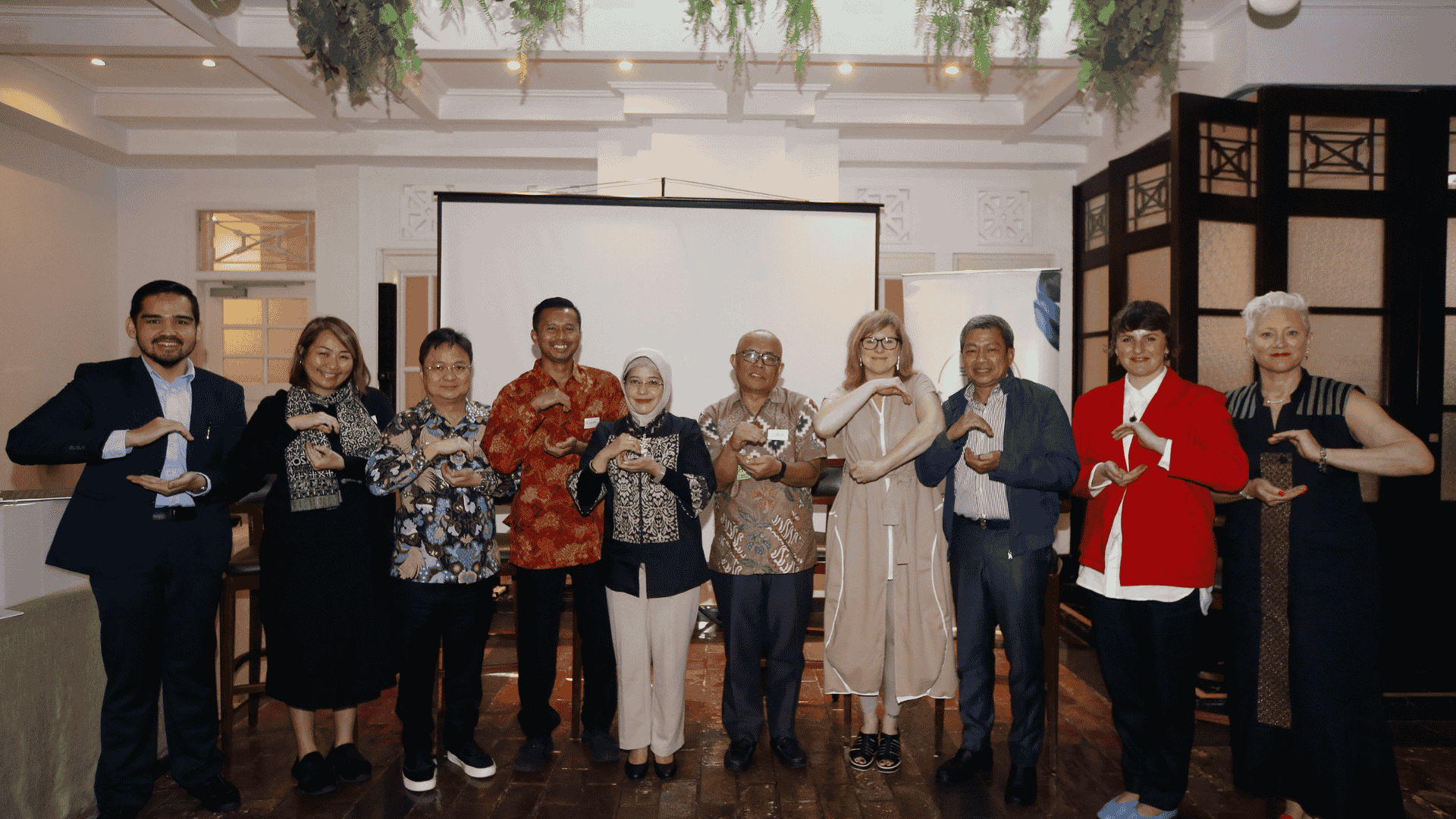On May 8, 2023, Jakarta became the host of a transformative milestone in Southeast Asia’s journey toward sustainable textiles. In collaboration with World Circular Textiles Day (WCTD) and Asia Pacific Rayon (APR), Rantai Tekstil Lestari (RTL) proudly organized the first-ever WCTD workshop in Asia, bringing together diverse voices under the theme:
“Roadmap to 2050: Materials, Products & Services, and People.”
Mapping a Circular Future for Indonesia’s Textile Industry
The event was attended by over 50 industry stakeholders—ranging from textile and garment manufacturers, sustainable fashion brands, and apparel designers to environmental NGOs and representatives from government ministries. This landmark workshop provided a collaborative space to reflect on Indonesia’s current textile ecosystem and to co-create a shared vision for a more sustainable, circular, and inclusive industry.
Why a Roadmap to 2050?
Globally, the textile industry faces alarming challenges. As Gwen Cunningham, Lead of the Circle Economy’s Textiles Programme and co-founder of WCTD, emphasized during her presentation:

“It is estimated only 1 percent of textiles are being recycled back into clothing, and 85 percent of all textiles are being landfilled or incinerated.”
Gwen Cunningham, Lead of the Circle Economy’s Textiles Programme
This statistic serves as a wake-up call—not only for the world but especially for Indonesia, as one of the largest textile producers globally. Without clear direction, the industry risks continuing harmful practices that contribute to waste, pollution, and social inequality.
The “Roadmap to 2050” initiative is a collective response to this challenge. It encourages players across the value chain—raw material producers, manufacturers, designers, brands, and regulators—to align strategies and collaborate for long-term systemic change.
Highlights from the Workshop
Keynote by Basrie Kamba, Chairman of RTL
In his opening remarks, RTL Chair Basrie Kamba delivered a strong message urging the nation to accelerate efforts in formulating a Textile and Product Roadmap (Peta Jalan TPT) that integrates sustainability and circularity at its core.
Policy Insight by Bappenas
Dr. Amalia Adininggar Widyasanti, Deputy Minister for Economic Affairs at Indonesia’s Ministry of National Development Planning (Bappenas), outlined the government’s commitment to green transformation. She reinforced how the roadmap aligns with Indonesia’s broader vision of sustainable economic development and global climate goals.
Collaborative Dialogue
Participants engaged in in-depth sessions exploring real-world solutions—such as innovative fibers, regenerative production methods, and business models based on circular economy principles. The workshop fostered dialogue across industries that don’t typically sit at the same table, facilitating cross-sector collaboration to redesign the future of fashion and textiles.
“RTL hopes that Indonesia will soon have a TPT Industry Roadmap that will clearly map out the direction of the country's industry so that we can be integrated and resilient – including a Roadmap towards Sustainability and Circularity.”
Basrie Kamba, Chair of RTL

Why It Matters
This workshop signifies more than just an event—it is a turning point.
Indonesia’s textile and fashion industry has long been a pillar of its economy. However, the urgent need to reduce waste, decarbonize production, and promote ethical practices has never been more apparent. The WCTD workshop demonstrated that Indonesia is not only ready—but capable—of becoming a regional leader in circular textile transformation.
By hosting this pivotal gathering, RTL reaffirmed its role as a catalyst, connector, and knowledge convener—bridging gaps between industry, government, and civil society.
Together with partners like APR and WCTD, RTL is committed to supporting the development of a nationally recognized roadmap—anchored in science, driven by data, and informed by community—towards a climate-resilient and economically just textile future.


